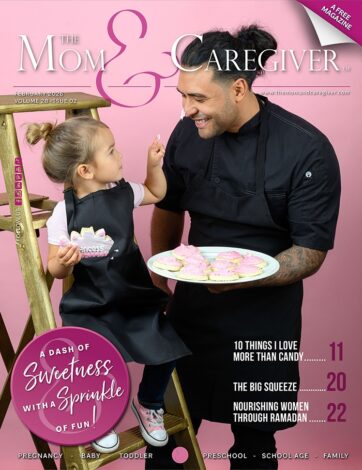The Next Stage – Keeping your family healthy
Infection prevention is not just for pandemics like COVID-19. Keep your family healthy by practising the basics:
- If your child is ill, keep them home. They will recover more quickly, and their illness will not spread. Some people have hidden health concerns and exposing them to an infection that is inconvenient to us, could be life-threatening to them. If you cannot easily take time off when your child is ill, try to arrange ahead of time for someone else to care for your child, “just in case”.
- Clean/disinfect surfaces that are touched most often – doorknobs, counter tops, taps, keyboards, phones, etc.
- Avoid others who are sick
- Encourage everyone to avoid touching their face
- Get immunized
- Choose healthy foods most of the time
- Try to get enough sleep
- Exercise, especially outside[i]
- Wash your hands often and thoroughly. Warm water and soap are the first choice. Teach your children to do the same. Every surface of hands, fingers, nails and wrists should be scrubbed for at least 20 seconds. You could use a timer, sing “Happy Birthday” twice or a snippet of your favourite song.
- Alcohol-based hand sanitizer (60% or more) should only be used if soap and water are not available. Cover all hand, finger, nail and wrist surfaces and rub all over until your hands are dry.
- When should hands be washed?
Before and after:
-food preparation and eating (including before breastfeeding)
-taking care of someone who is sick or caring for a wound, i.e. putting on a bandage
Before:
-giving or taking medications
After:
-changing diapers or using the toilet
-blowing your nose or wiping someone else’s
-coughing or sneezing into a tissue (then throw the tissue away). Cough or sneeze into the curve of your elbow if you do not have a tissue
-Interacting with animals, their crates or their pee or poop
-Cleaning your home, car, yard etc.
-Sorting garbage or recycling
Contact your health care professional if your baby/child has:
- A fever and is less than 6 months, or your older child has a fever lasting longer than 72 hours
- A long-lasting cough or chokes/vomits with coughing
- An earache
- Severe irritability or unusual, long-lasting crying
- Breathing problems
- Diarrhea and is younger than 6 months, or black/bloody stools for any child
- Vomiting for longer than 4-6 hours
- Is very sleepy/unusually difficult to wake
- Signs of dehydration (fewer than four wet diapers in 24 hours, dry mouth and eyes, etc.)
Talk to your Health Care Provider before giving “over the counter” medicine to children less than 6 years old![ii]
For more information turn to these trusted sources:
https://www.caringforkids.cps.ca/
https://www.healthunit.com/infectious-diseases
[1] Middlesex-London Health Unit. (2020). Preventing infections. Retrieved from https://www.healthunit.com/preventing-infections
[1] Canadian Pediatric Society. (2018). Common infections and your child. Retrieved from https://www.caringforkids.cps.ca/handouts/common_infections_and_your_child
Submitted by Heather Bywaters RN PHN, Middlesex-London Health Unit for the Middlesex-London Community Early Years Partnership
[i] Middlesex-London Health Unit. (2020). Preventing infections. Retrieved from https://www.healthunit.com/preventing-infections
[ii] Canadian Pediatric Society. (2018). Common infections and your child. Retrieved from https://www.caringforkids.cps.ca/handouts/common_infections_and_your_child












